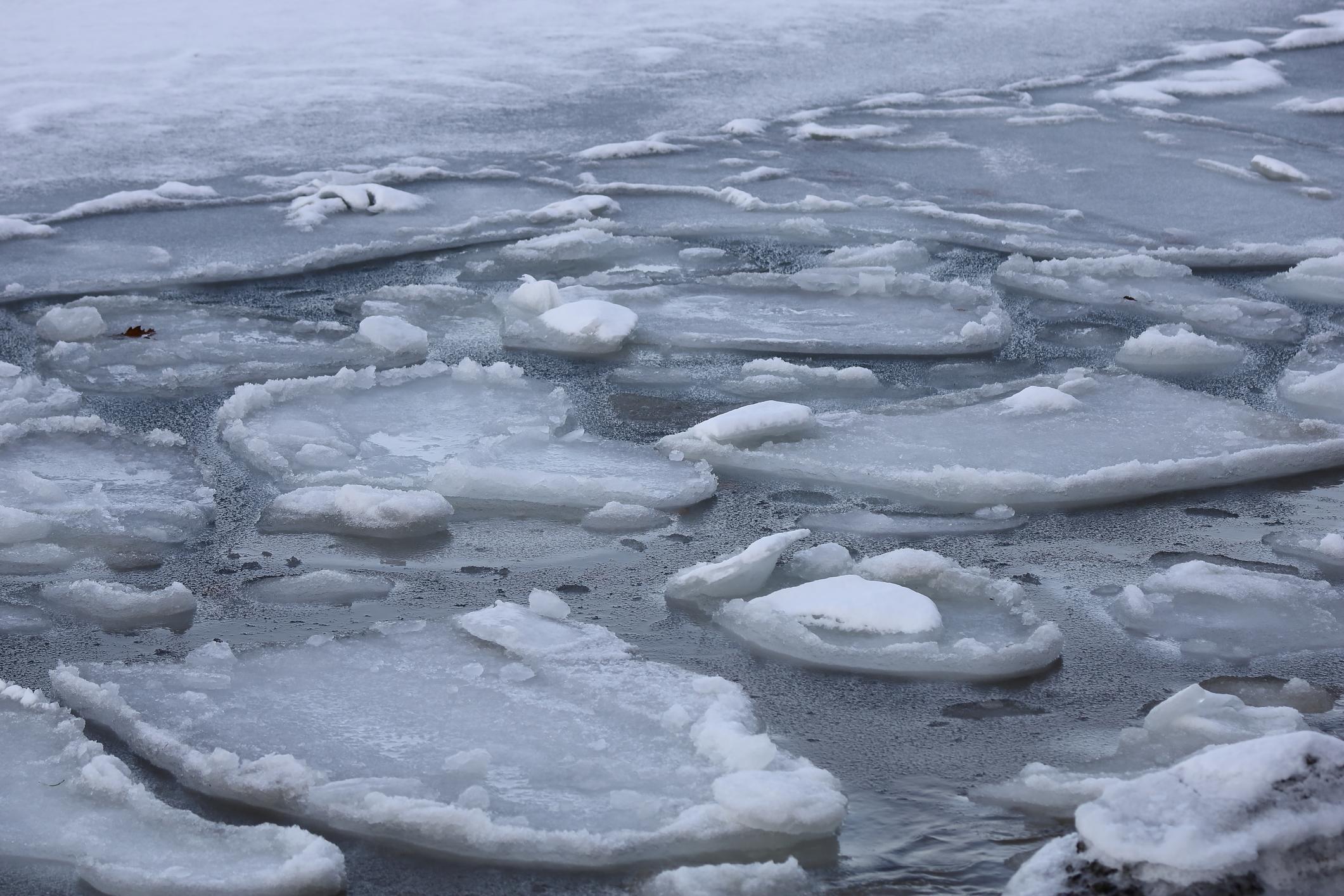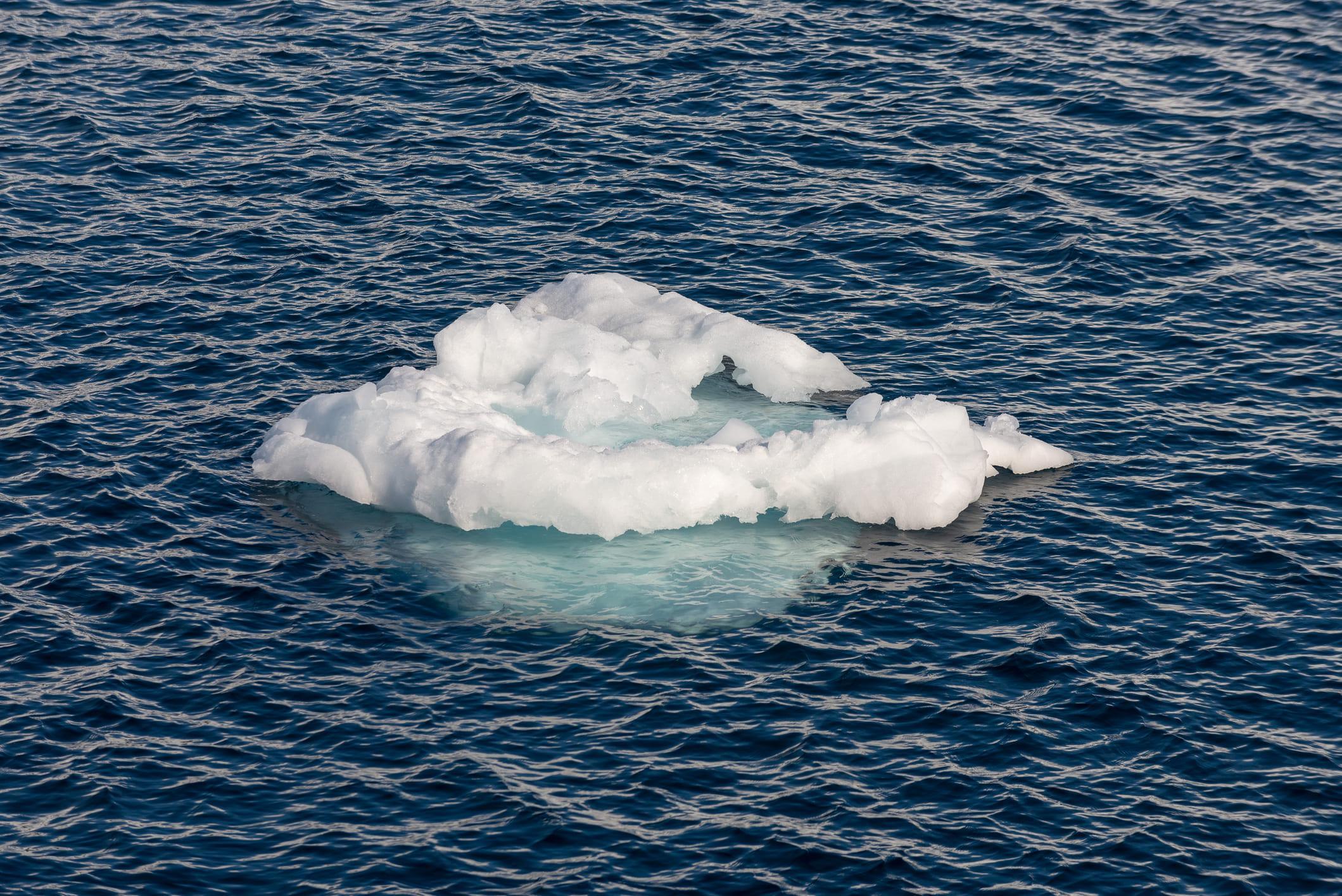Why Does Ice Float on Water?


Ice is indeed a fascinating substance that has captured the imagination of scientists and laypeople for centuries. One of the properties that makes it so intriguing is its ability to float on water, which seems counterintuitive at first glance. After all, solids are typically denser than liquids, and one would expect ice to sink in water rather than float.
In this article from thedailyECO, we will explore the reasons why ice floats on water and the factors that contribute to this phenomenon. We will examine the behavior of water molecules and the unique crystal structure of ice to uncover the scientific explanation behind this property.
What is the difference between ice and water?
Ice and water are two different states of the same substance, H2O, also known as water. Although they share many chemical properties, there are some key differences between the two.
The most obvious difference between ice and water is their physical state. Ice is a solid, while water is a liquid. This difference in physical state is due to the temperature at which they exist. Water exists in its liquid state at room temperature, but it freezes and becomes solid when it is cooled to 0°C (32°F) or below.
Water and ice have different densities, which is a result of their molecular structures. The molecules in liquid water are closely packed together, which makes it denser than ice. When water freezes and becomes ice, the molecules arrange themselves in a crystalline structure that leaves open spaces between them. These open spaces reduce the density of ice, making it less dense than liquid water.
Ice and water also have different thermal properties. Water has a high specific heat capacity, which means that it can absorb a lot of heat energy before its temperature increases. This property makes water an effective coolant, as it can absorb a lot of heat from a hot object without itself becoming significantly hotter. Ice, on the other hand, has a lower specific heat capacity than water, which means that it can absorb less heat energy for a given increase in temperature.
Finally, ice and water have different electrical properties. Liquid water is an excellent conductor of electricity, which means that it can conduct an electric current. Ice, however, is not a good conductor of electricity because its crystal structure prevents the flow of charged particles.
You might also be interested in our article that explores the phenomenon of hair ice.

What is the difference between float and sink?
Sinking and floating refer to the behavior of objects when placed in a fluid, such as water or air. The ability of an object to sink or float is determined by its density compared to the density of the fluid it is placed in. In other words:
- If the object has a higher density than the fluid, it will sink.
- If the object has a lower density than the fluid, it will float.
This is because objects that are denser than the fluid they are placed in experience a greater gravitational force, causing them to sink. In contrast, objects that are less dense than the fluid they are placed in experience a buoyant force that counteracts the gravitational force and allows them to float. This principle is known as Archimedes' principle.
Other factors that can impact whether an object sinks or floats include the shape and size of the object, as well as the viscosity of the fluid. For example, objects with a greater surface area relative to their volume, such as leaves or feathers, are more likely to float because they displace more fluid. Likewise, objects that are more streamlined, such as boats or submarines, are more likely to float because they experience less resistance from the fluid.
Do not miss this other article, where we explain what icebergs are.
Why does ice float on water?
Ice floats in water because, as mentioned before, it is less dense than liquid water. This seems counterintuitive, as we typically associate solids with being more dense than liquids. However, the unique crystal structure of ice makes it less dense than liquid water.
The molecules in ice are arranged in a crystal lattice structure with open spaces between them. These open spaces, or "holes," result in a lower density compared to liquid water, which has a more tightly packed arrangement of molecules. As a result, when water freezes and becomes ice, it becomes less dense and thus floats on top of liquid water.
How does this affect Earth's climate?
The property of ice floating on water has significant implications for the Earth's climate. While it allows fish and other aquatic organisms to survive winter by insulating the water beneath it, the melting of ice caps due to global warming has far-reaching consequences.
As polar ice caps melt, the ice floating on the ocean does not contribute to sea level rise, since it has already displaced its own volume of water. However, as the ice melts, it exposes more dark ocean water, which absorbs more sunlight and heat. This, in turn, leads to further melting of the ice, creating a positive feedback loop that accelerates global warming.
The melting of polar ice caps is one of the most significant contributors to rising sea levels, which can lead to coastal erosion, loss of habitat, and displacement of human populations. It also has broader implications for climate patterns, such as changes in ocean currents and weather systems.
We invite you to check out our other article that provides practical tips to protect nature's ecosystems. From reducing plastic waste to conserving energy, we offer actionable steps that anyone can take to make a positive impact on the environment.

If you want to read similar articles to Why Does Ice Float on Water?, we recommend you visit our Facts about nature category.
- Atkins, P., Jones, L. (2007) Principles of chemistry: the paths of discovery. Buenos Aires: Panamerican Medical Editorial.
- Cromer, A. (1984) Physics for the life sciences . Barcelona: Editorial Reverté.







